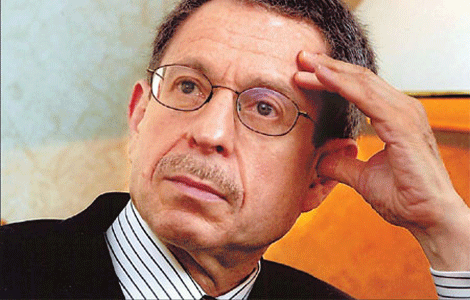Dai's visit to Vietnam 'comes at key time'
Updated: 2011-09-06 07:51
By Cheng Guangjin (China Daily)
|
|||||||||
BEIJING - State Councilor Dai Bingguo started a five-day visit to Vietnam on Monday, which analysts said comes at an important time in terms of easing tensions and achieving greater consensus in bilateral relations.
During his visit, Dai is scheduled to co-chair the fifth meeting of the China-Vietnam steering committee on cooperation with Vietnamese Deputy Prime Minister Nguyen Thien Nhan, according to Xinhua News Agency.
The steering committee is a platform for dialogue between high-level officials of the two countries. The committee meets annually to discuss strategic and critical issues that affect the bilateral relationship.
Dai's visit is very timely as it comes after bilateral relations were strained over disputes in the South China Sea, and will help ease the tension and show China's goodwill and sincerity in its relationship with Vietnam, said Zhang Xuegang, a Beijing-based researcher on Southeast Asian studies.
"Stabilizing the South China Sea area is China's major message to Vietnam, and China is expecting a positive response for further peaceful coexistence," Zhang told China Daily.
Bilateral relations have been tested by maritime disputes since tensions flared up in 2010, when the United States claimed national interests in the area at a regional security meeting held in Hanoi, and later held joint military exercises with Vietnam.
China has insisted on its indisputable sovereignty in the South China Sea, while the Philippines, Malaysia, Brunei and Vietnam also lay claim to some islands and reefs in the oil-rich area.
China and Vietnam are in negotiations on an agreement on basic principles guiding the settlement of the maritime issue, and progress has been made, Chinese Ambassador to Vietnam Kong Xuanyou said in a recent interview with the Vietnam News Agency.
Three documents on the land border between China and Vietnam took effect in 2010, Kong said.
In April this year, the China-Vietnam Joint Committee on Land Borders also started work, laying a firm foundation for the stable development of relations between the two countries, said Kong.
"If the issue cannot be solved during a certain period of time, we should not let the differences affect the normal development of bilateral relations," Kong said.
In an interview with Xinhua before Dai's visit, Vietnamese Ambassador to China Nguyen Van Tho said bilateral relations remained warm despite disputes in the South China Sea.
Although the historically thorny South China Sea issue is complicated, it does not represent the full breadth of Vietnam-China ties, Tho said.
"It's a fact that overall Vietnam-China relations have been good in recent years," said Tho, adding that he expected the China-Vietnam Five-Year Development Plan for Economics and Trade to be signed soon.
China is currently Vietnam's largest trading partner. In 2010, bilateral trade reached $30 billion, which is $5 billion more than the target previously agreed by both countries.
In the first half of this year, bilateral trade surpassed $18 billion, 40.9 percent higher than the same period last year.
During a meeting between Chinese Defense Minister Liang Guanglie and Vietnamese Vice-Defense Minister Nguyen Chi Vinh in August in Beijing, the two countries pledged to resolve disputes in the South China Sea through consultations and negotiations, said Xinhua. The two sides also plan to set up a defense hotline, according to Agence France-Presse.
Zhang Yunbi contributed to this story.











